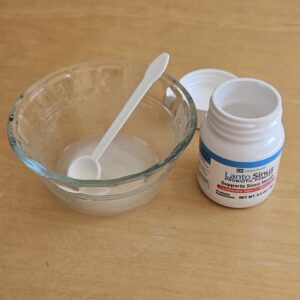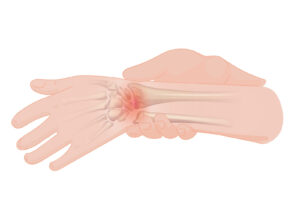
French fries are a favorite food of Americans. However, a recent large study found that eating 3 or more servings of French fries a week is associated with a 20% increased risk for developing type 2 diabetes. The same risk is not found with eating other forms of potatoes, such as mashed, baked, or boiled.
There was a dose response effect with French fry consumption - the more servings a person ate per week, the greater the risk of developing type 2 diabetes. For 3 servings per week, there was a 20% increase in type 2 diabetes, but consuming 5 or more servings of French fries weekly was associated with a 27% higher rate of type 2 diabetes (when compared to people who rarely ate French fries, that is, less than 1 serving per week).
Also, replacing 3 servings per week of any form of potatoes with whole grains lowers the risk of developing type 2 diabetes, but not replacing potatoes with white rice. White rice is linked to an increased risk for type 2 diabetes.
Why is that? There is lots of fiber in whole grains and in whole potatoes (especially the skin), which is not present in French fries and white rice. Whole potatoes are also a good source for a number of nutrients, such as vitamin C, potassium, polyphenols, and magnesium. Many studies find that eating a diet rich in fruits, vegetables, whole grains, legumes, and nuts is linked to a lower incidence of type 2 diabetes.
From Science Daily: What scientists discovered about french fries and diabetes
Eating three servings of French fries a week is associated with a 20% increased risk of developing type 2 diabetes, but eating similar amounts of potatoes cooked in other ways -- boiled, baked or mashed -- does not substantially increase the risk, finds a study published by The BMJ on August 6. ...continue reading "French Fries and Diabetes"

 There is another easy (and lazy) way to use L. sakei (e.g., Lanto Sinus), for sinusitis or when sinus symptoms are starting. Only when needed, of course.
There is another easy (and lazy) way to use L. sakei (e.g., Lanto Sinus), for sinusitis or when sinus symptoms are starting. Only when needed, of course.
 It is still unknown whether probiotic supplementation would help these conditions because the studies are not yet done. But researchers do suggest eating an anti-inflammatory diet - which means a diet rich in fruits, vegetables, whole grains, legumes (includes beans), fish, seeds, nuts, and olive oil. This kind of diet has lots of fiber to feed and support beneficial bacteria.
It is still unknown whether probiotic supplementation would help these conditions because the studies are not yet done. But researchers do suggest eating an anti-inflammatory diet - which means a diet rich in fruits, vegetables, whole grains, legumes (includes beans), fish, seeds, nuts, and olive oil. This kind of diet has lots of fiber to feed and support beneficial bacteria. There have been so few bees in my garden the last few years that I get excited when I see one. This bee seems to really like the flowers of my mint plant.
There have been so few bees in my garden the last few years that I get excited when I see one. This bee seems to really like the flowers of my mint plant. Once again, a chemical banned in Europe (due to possible health harms) is allowed to be used in the US. The chemical TPO, which is used in nail polish gels, is viewed as "carcinogenic, mutagenic, or toxic for reproduction". In other words, could cause cancer and impact fertility.
Once again, a chemical banned in Europe (due to possible health harms) is allowed to be used in the US. The chemical TPO, which is used in nail polish gels, is viewed as "carcinogenic, mutagenic, or toxic for reproduction". In other words, could cause cancer and impact fertility.
 Millions of pounds of pesticides are used each year in the US: on farms, in buildings and homes, on lawns, in pet flea and tick products - basically everywhere. And so the pesticides eventually wind up in us - from the foods we eat, the water we drink, the air we breathe (when pesticides drift during applications or when used indoors), and the treated lawns and ground we walk on.
Millions of pounds of pesticides are used each year in the US: on farms, in buildings and homes, on lawns, in pet flea and tick products - basically everywhere. And so the pesticides eventually wind up in us - from the foods we eat, the water we drink, the air we breathe (when pesticides drift during applications or when used indoors), and the treated lawns and ground we walk on. Many of us absolutely desire and need a caffeine containing beverage such as coffee or tea in the morning, and find it difficult to function without it. So, findings from a recent
Many of us absolutely desire and need a caffeine containing beverage such as coffee or tea in the morning, and find it difficult to function without it. So, findings from a recent  Weight loss drugs (e.g., Ozempic) are very, very popular these days. But what happens when you stop taking the prescription drugs? A recent
Weight loss drugs (e.g., Ozempic) are very, very popular these days. But what happens when you stop taking the prescription drugs? A recent  As people age, they frequently start wondering what they can do to prevent memory and thinking problems, and especially dementia. The good news is that several large studies found that there are a number of lifestyle changes that one can do to have a healthier (memory! thinking!) brain in later years. Even if you are already in your 60s and 70s.
As people age, they frequently start wondering what they can do to prevent memory and thinking problems, and especially dementia. The good news is that several large studies found that there are a number of lifestyle changes that one can do to have a healthier (memory! thinking!) brain in later years. Even if you are already in your 60s and 70s.